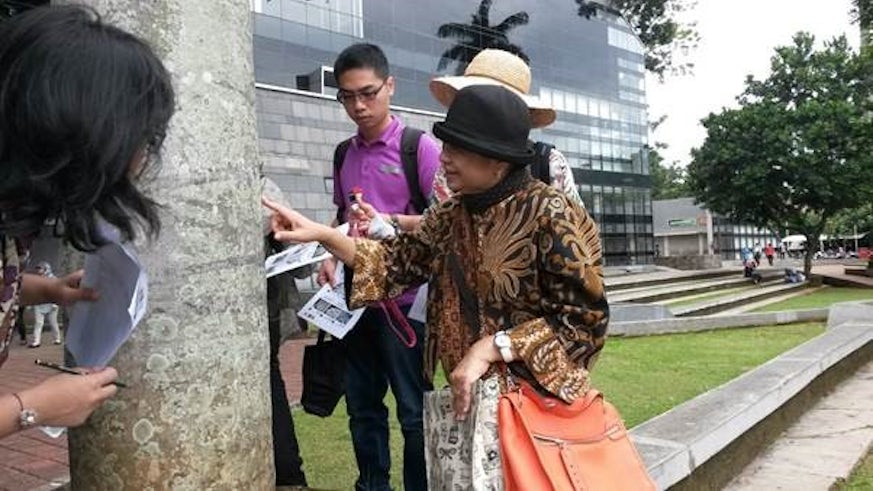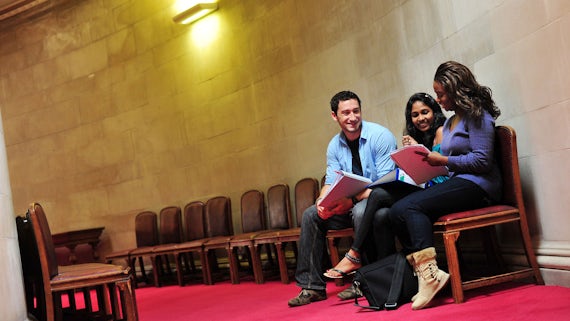Urban planning for the mega region of Jakarta
7 Chwefror 2017

Students from the School of Geography and Planning MSc in Eco-Cities visited Jakarta, Indonesia to develop ideas of how a rapidly growing conurbation can become a more sustainable and healthier place.
Jakarta is the world’s second largest megacity with a population of 30 million residents. The city is experiencing a number of challenges, including air and water pollution, noise, congestion and poor quality development.
During the field study visit Cardiff students collaborated with students from the University of Indonesia and the University of Florida. Student groups worked on three different themes focusing on sub-districts of the Jakarta region. One group explored a cultural conservation area and compared attitudes toward green spaces and nature of visitors and residents. Another group investigated the issue of ‘normalisation’ of informal settlers on the shores of a natural lake. These investigations revealed complex relationships and conflicts between social groups, and between groups and their environment, which challenged efforts to promote sustainability.
A third group of students tested out ideas of bottom up data collection under a citizens’ science paradigm using lichens as bio-indicators for air pollution as well as a hand-held air pollution monitor. A comparison of results between busy roads and nearby open and green areas corroborated assumptions of lower air pollution in parks versus less vegetated areas and underlined the importance of protecting green spaces as healthy oasis in fast growing urban areas.
Students gained valuable intercultural working skills, alongside gaining new knowledge of megacity development and applying field work methods, such as interviews, administering surveys and mapping behavioural observations. Students were able to demonstrate their knowledge on the final day when they presented preliminary results from their data collection and recommendations for interventions to University of Indonesia academics and representatives from local government.
Information on the work of students from the January 2016 field study visit can be found here.
More information on the MSc Eco-Cities, including how to apply can be found here.
Rhannu’r stori hon
Mae'r Ysgol yn defnyddio meddwl beirniadol a gwybodaeth ymarferol i ddatrys problemau economaidd, amgylcheddol a chymdeithasol er mwyn mynd i'r afael â’r heriau mawr y mae cymdeithasau dynol a lleoedd yn eu hwynebu heddiw.
